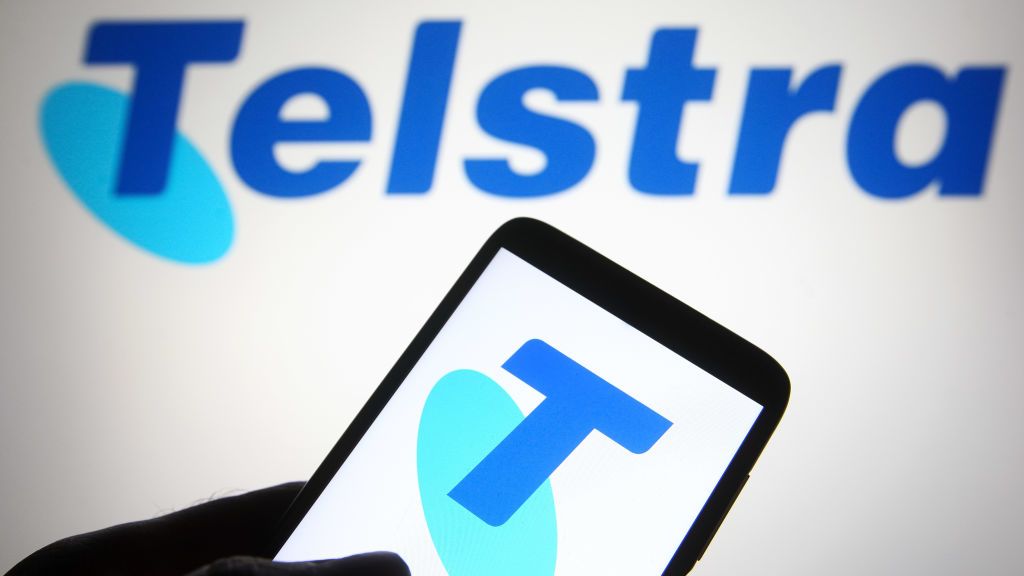Why does China want to join the Digital Economy Partnership Agreement (DEPA)?
We explore what the landmark multinational trade agreement involves and why countries might want to join it


Sign up today and you will receive a free copy of our Future Focus 2025 report - the leading guidance on AI, cybersecurity and other IT challenges as per 700+ senior executives
You are now subscribed
Your newsletter sign-up was successful
As businesses around the world pursue digital transformation to modernise their operations, politicians have realised digital trade, data rules, and services need to be enshrined in formalised agreements too.
Trade between nations is slowly evolving to include digital services and technological aspects that were previously unheard of. This has led to the UK, for example, aiming to break down digital trade barriers to help businesses export services abroad.
RELATED RESOURCE

Building data-driven government with the Microsoft Power Platform
How to break down data silos and reap valuable data insights
Taking this a step further, some countries are formally ratifying digital agreements to cooperate when it comes to technology. The US and Japan, for example, signed a digital trade agreement in October 2019, which signified the importance of the digital economy.
While addressing the G20 Leaders’ Summit in October last year, Chinese President Xi Jinping revealed the country had decided to apply to join the Digital Economy Partnership Agreement (DEPA). This is a first of its kind agreement between Asia-Pacific and Latin American nations that establishes new approaches to digital trade and supports interoperability. If successful, China would be the largest economy to join the agreement.
What is DEPA?
This partnership is a trade agreement established in May 2019 between Singapore, Chile, and New Zealand. The deal was signed electronically, due to the pandemic, in the following June, before it finally came into force on 7 January 2021 for New Zealand and Singapore, and Chile in November.
The agreement, which was the first digital economy agreement signed by Singapore, establishes collaboration in digital trade issues, addresses concerns arising from digitalisation, and promotes interoperability between different regimes.
DEPA’s three signatories claim it’s the first agreement of its kind and represents a new breed of economic engagement and trade in a digital era, and comprises three key elements.
Sign up today and you will receive a free copy of our Future Focus 2025 report - the leading guidance on AI, cybersecurity and other IT challenges as per 700+ senior executives
DEPA: Facilitating end-to-end digital trade
Digital identities: Develop safe and secure digital identities that are mutually recognised.
Paperless trade: Reduce time for document transit and cargo clearance.
E-invoicing: Shorter invoice processing time, fast payment, and cost savings.
FinTech and E-Payments: Promote cooperation among companies in the FinTech sector.
DEPA: Enabling trusted data flows
Personal data protection: Develop mechanisms to protect personal data that is transferred across borders, based on international frameworks.
Cross-border data flows: Businesses can send information across borders and serve customers, no matter where they are located.
Open government data: Expand access to and use of open government data to generate new opportunities for businesses.
Data innovation and regulatory sandboxes: Encourage the development of new products and services by promoting data-driven innovation across borders.
DEPA: Building trust in digital systems and facilitating opportunities for participation in the digital economy
Artificial Intelligence: Promote the adoption of ethical AI governance frameworks, with principles the countries must agree to, to harness AI responsibly.
SMB co-operation: Establish capacity-building efforts to promote information sharing and exchange.
Online consumer protection: Adopt laws that guard against fraudulent, misleading, or deceptive content that harms consumers in online commercial activities.
Digital inclusivity: Remove barriers to the digital economy and promote digital inclusion and participation.
Why does China want to join DEPA?
China’s ambitions to join DEPA are in line with plans to deepen domestic reforms and further open up the country to the outside world, which began forty years ago, officials say. Being part of the agreement would also help China strengthen cooperation with its members.
Chinese officials haven’t explicitly stated the nation’s motivations behind joining DEPA, but it’s an attractive proposition, given China’s economy and labour market transition from traditional industries towards high-tech and services-based sectors, according to Dezan Shira & Associates. It also helps China become a high-tech powerhouse if it can strengthen international cooperation and trade in the digital economy.
A key part of DEPA, particularly appealing to China, is the focus on boosting the participation of SMBs in the digital economy. SMBs form a key part of China’s economy and accounted for 80% of the nation’s non-government employment as of 2019. By joining DEPA, it should give China’s SMBs a boost by giving them an incentive to undergo digital transformation and engage with the digital economy.
Can China join DEPA?
Before being admitted to the agreement, China will have to modify its data laws, as DEPA demands high standards on data openness and transparency for its members. There are, in particular, requirements for cross-border flow of data and data storage, which may go against China’s Personal Information Protection Law (PIPL).
PIPL, for instance, requires companies that handle the personal information of users in China to undergo a security assessment before transferring the data overseas. DEPA, however, stipulates cross-border transfers of information by electronic means, including personal information, should be permitted.
DEPA also underlines that businesses or investors shouldn’t have to use or locate computing facilities in a country’s territory as a condition for conducting business in that territory. This goes against PIPL which requires operators to store personal data they collect in China within its borders. China’s new data laws may, on the other hand, even help its position, as PIPL contains strong measures for users online, aligning with DEPA’s objectives.
Aside from ensuring these data laws comply with DEPA, China’s fate is left in the hands of the agreement's members. When considering new applications, the current signatories to take into account whether China is prepared to follow the agreement’s provisions. The Asian Trade Centre says this is always true for accession processes, but might be even more relevant in a deal that’s built around shared norms and rule creation for the future.
Which other countries are trying to join DEPA?
China isn’t the only country that’s expressed an interest in joining DEPA. Canada registered interest to begin exploratory discussions to join the agreement in December 2020, which was welcomed by Singapore.
Then, in October 2021, New Zealand, Chile, and Singapore agreed to commence negotiations for accession to DEPA by South Korea. South Korea believes the pact could serve as an extensive platform for establishing a global digital cooperation network. Approval from DEPA’s joint committee is required for any nation to become a member, although there are currently no specific accession criteria.
Zach Marzouk is a former ITPro, CloudPro, and ChannelPro staff writer, covering topics like security, privacy, worker rights, and startups, primarily in the Asia Pacific and the US regions. Zach joined ITPro in 2017 where he was introduced to the world of B2B technology as a junior staff writer, before he returned to Argentina in 2018, working in communications and as a copywriter. In 2021, he made his way back to ITPro as a staff writer during the pandemic, before joining the world of freelance in 2022.
-
 How the rise of the AI ‘agent boss’ is reshaping accountability in IT
How the rise of the AI ‘agent boss’ is reshaping accountability in ITIn-depth As IT companies deploy more autonomous AI tools and agents, the task of managing them is becoming more concentrated and throwing role responsibilities into doubt
-
 Hackers are pouncing on enterprise weak spots as AI expands attack surfaces
Hackers are pouncing on enterprise weak spots as AI expands attack surfacesNews Potent new malware strains, faster attack times, and the rise of shadow AI are causing havoc
-
 Latitude Financial's data policies questioned after more than 14 million records stolen
Latitude Financial's data policies questioned after more than 14 million records stolenNews Some of the data is from at least 2005 and includes customers’ name, address, and date of birth
-
 Latitude hack now under state investigation as customers struggle to protect their accounts
Latitude hack now under state investigation as customers struggle to protect their accountsNews The cyber attack has affected around 330,000 customers, although the company has said this is likely to increase
-
 IDCARE: Meet the cyber security charity shaping Australia and New Zealand's data breach response
IDCARE: Meet the cyber security charity shaping Australia and New Zealand's data breach responseCase Studies IDCARE is recruiting a reserve army to turbocharge the fightback against cyber crime not just in the region, but in the interests of victims all over the world
-
 Australia commits to establishing second national cyber security agency
Australia commits to establishing second national cyber security agencyNews The country is still aiming to be the most cyber-secure country in the world by 2030
-
 Medibank bleeds $26 million in cyber costs following hack
Medibank bleeds $26 million in cyber costs following hackNews The company believes this figure could rise to $45 million for the 2023 financial year
-
 TikTok's two new European data centres to address data protection concerns
TikTok's two new European data centres to address data protection concernsNews The company is under pressure to prove its user data isn’t being accessed by the Chinese state
-
 Cyber attack on Australia’s TPG Telecom affects 15,000 customers
Cyber attack on Australia’s TPG Telecom affects 15,000 customersNews It is the third cyber attack on a major Australian telco since October
-
 Telstra blames IT blunder for leak of 130,000 customer records
Telstra blames IT blunder for leak of 130,000 customer recordsNews Australia’s biggest telco said that the error was due to a mismanagement of databases and not a cyber attack
